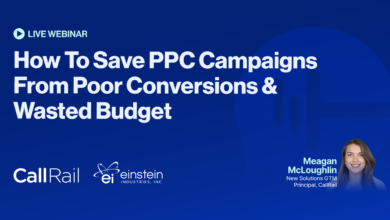Google On Negative Authorship Signal And Mini-Site Reputation
At the recent Search Central Live NYC event, Danny Sullivan discussed what happens when a site begins publishing vastly different content on a site and how that may affect rankings, introducing the concept of a mini-site as a metaphor for dividing the reputation of a site. He also discussed the concept of negative authorship authority, which some SEOs believe follows authors from penalized websites and can negatively affect the other sites they publish on.
Negative Authorship Reputation
Danny initially discussed a negative authorship signal that some in the SEO community believe can follow an author from site to site. The idea is that an author of content that is banned on one site will also have their content banned on another site. He denied that Google tracked author authority signals from site to site.
Sullivan explained:
“If you wrote for a site that got a manual action, it doesn’t somehow infect the other site that you might work for later on, so again, this is not something that freelancers should be worried about.
If you’re a publication and for whatever reason you feel like employing a freelancer, and it makes sense, that’s fine. You don’t need to worry about who they worked for before.
And if you are a freelancer you do not need to go back to the publications and say, can you take my byline down because now I can’t get hired from anybody else because they think I’m going to infect them. It is not like that. It’s not a disease. “
The above SEO myth likely began when publishers noticed that content created by a certain author across multiple sites was banned. In that case, it’s reasonable to assume that there was something wrong with the content but that’s not necessarily true. It could have been the case that the website itself was poorly promoted with unnatural links. Or, it could be that the site itself was engaged with selling links.
The takeaway from what Danny Sullivan shared is that a manual action on one site doesn’t follow an author to another site. Another takeaway is that there is no negative authorship signal that Google is tracking.
And if there’s no negative authorship signal could it be that there is no positive author signal as well? In my opinion it’s a reasonable assumption. A signal like that would be too easy to manipulate. Whatever signals Google uses to understand site reputation is likely enough for the purpose of citing an information source in the search results.
Although claims by some SEOs have been made about authorship signals, authorship signals have never been known to be a thing with Google’s algorithms. Google has a long history of denying the use of authorship signals and Danny’s statements offer further validation that Google continues to not use authorship as signals for ranking purposes.
See also: Google Says These Are Not Good Signals
Ranking Drops And Mini-Site Reputation
Danny next begins talking about how a new section of a site could suddenly lose rankings. He says this isn’t necessarily a bad thing. It’s just Google trying to figure out this new section and that if it’s sufficiently different Google could even start treating it as a standalone mini-site. This is a really fascinating thing he gets into here.
Danny used the example of the addition of a forum to a website.
Danny explained
“For example, you might have a site where you start running a forum. Forums can be different and we would want to understand that this looks like a forum so that we can then rank the forum content against other kinds of forum content on kind of a level playing field or understand that that forum content should be included in things where we try to show forum content.”
What can happen is… that it could be that part of your site was doing better because it was seen as part of the overall site. Now we kind of see it as more of independent and part of a full site on its own.
And potentially you could see a traffic drop that comes from that. That doesn’t mean that you suddenly got a site reputation abuse ban issue because first of all that might not have involved third party content abusing first party work, right? Those were the things. So if it doesn’t have any of that it doesn’t have anything to do with that.Secondly, we would have sent you an email. So, it’s not bad.
Because it just could be we’ve had a general re-ranking… It could also mean that in the long run that part of your site might actually do better, because we might recognize it in different ways, that we might be able to surface it in different ways. And it might start sort of earning its own like ‘mini-site’ reputation along the way.”
Three things to take away from that last part.
A ranking drop could be due to benign things, don’t always assume that a ranking drop is due to a spam or other negative algorithmic action.
Second, a rankings drop could be due to a “general re-ranking” which is a vague term that went unexplained but is probably a reference to minor ranking adjustments outside of a core algorithm update.
The third takeaway is the part about a section of a website earning it’s own “mini-site” reputation. I think SEOs should not create theories about mini-sites and mini-site reputations because that’s not what Danny Sullivan said. He used the word “like” which means that he likely used the phrase “mini-site” as a metaphor.
Featured Image by Shutterstock/Joseph Hendrickson




